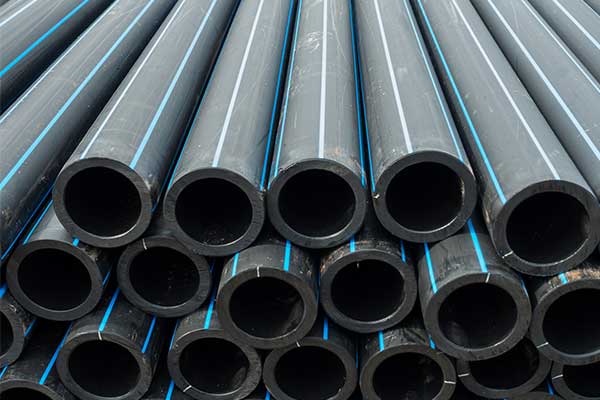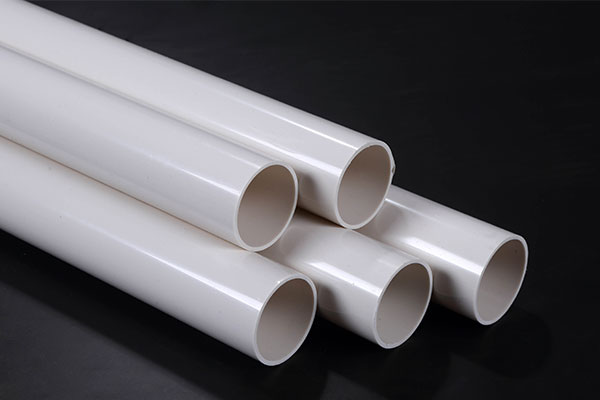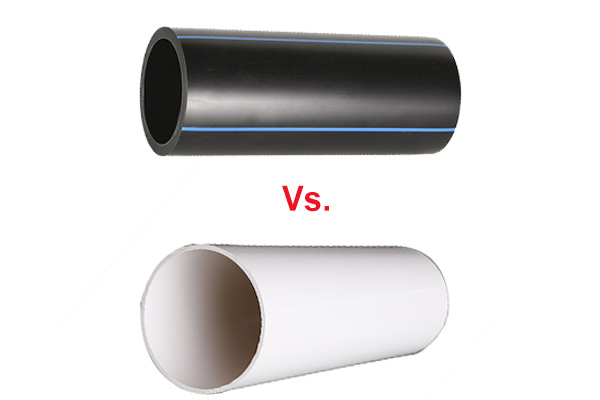HDPE vs. PVC Pipes: Which is Better for You?
When it comes to choosing the right piping material for construction, plumbing, and industrial applications, HDPE (High-Density Polyethylene) and PVC (Polyvinyl Chloride) pipes are two of the most popular options. Both materials offer durability, corrosion resistance, and cost-effectiveness, but they have key differences that make them suitable for different applications. In this article, we’ll compare HDPE vs. PVC pipes in terms of strength, flexibility, cost, lifespan, and environmental impact to help you make an informed decision.

What is HDPE Pipe?
HDPE pipes are made from high-density polyethylene, a thermoplastic polymer known for its flexibility, toughness, and resistance to chemicals. These pipes are commonly used in water supply, gas distribution, sewage systems, and industrial applications.
Advantages of HDPE Pipes:
- Flexibility: HDPE pipes can bend without breaking, making them ideal for areas with shifting soils or seismic activity.
- Durability: Resistant to corrosion, chemicals, and UV exposure, HDPE pipes can last 50+ years in most applications.
- Leak-Free Joints: HDPE pipes are fused using heat or electrofusion, creating strong, leak-proof connections.
- Lightweight: Easier to transport and install compared to metal pipes.
Disadvantages of HDPE Pipes:
- Higher Initial Cost: HDPE pipes are more expensive than PVC pipes.
- Lower Pressure Ratings: Not as rigid as PVC, making them less suitable for high-pressure applications.
Applications of HDPE Pipes
- Water and gas distribution: Excellent for underground pipelines due to their leak-proof fusion joints.
- Irrigation and agriculture: Withstands harsh environmental conditions and chemical exposure.
- Mining and industrial applications: Highly resistant to chemicals and abrasion.
- Drainage and sewer systems: Reduces clogging due to its smooth interior surface.

What is PVC Pipe?
PVC pipes are made from polyvinyl chloride, a rigid plastic material commonly used in water supply, drainage, and sewer systems.
Advantages of PVC Pipes:
- Higher Pressure Resistance: PVC pipes have a higher pressure rating, making them suitable for high-pressure water systems.
- Cost-Effective: Generally cheaper than HDPE pipes.
- Ease of Installation: Lightweight and easy to cut, making installation simple.
- Smooth Interior Surface: Reduces friction, allowing for better water flow.
Disadvantages of PVC Pipes:
- Brittleness: PVC is more brittle than HDPE and can crack under heavy loads or impact.
- Less Flexible: Not suitable for environments with ground movement or seismic activity.
- Joint Vulnerability: Joints are typically connected using solvent cement, which can weaken over time.
Applications of PVC Pipes
- Residential and commercial plumbing: Common in water supply and drainage systems.
- Low-pressure irrigation: A cost-effective solution for small-scale irrigation needs.

Key Differences Between HDPE and PVC Pipes
| Feature | HDPE Pipes | PVC Pipes |
|---|---|---|
| Material Flexibility | Highly flexible, can bend without breaking | Rigid, requires fittings for turns |
| Durability | High resistance to impact and corrosion | Rigid but can crack under stress |
| Jointing Method | Heat fusion, eliminating leaks | Solvent welding or gasketed joints |
| Corrosion Resistance | Excellent | Good, but can degrade with some solvents |
| Installation | Requires fusion welding, fewer joints | Lightweight but requires more fittings |
| Cost | Higher upfront cost but lower maintenance | Lower initial cost but may require repairs |
| Lifespan | 50+ years | 30–50 years |
Which One Should You Choose?
- If you need a long-lasting, leak-proof, and impact-resistant solution, HDPE is the better choice.
- If budget and rigidity are your main concerns, PVC pipes offer a more affordable option.
By understanding the key differences between HDPE vs. PVC pipes, you can choose the right material to ensure the success and longevity of your piping system.
Need High-Quality HDPE Pipes for Your Project?
If you’re looking for durable and certified HDPE pipes, contact us today for expert guidance and competitive pricing!
